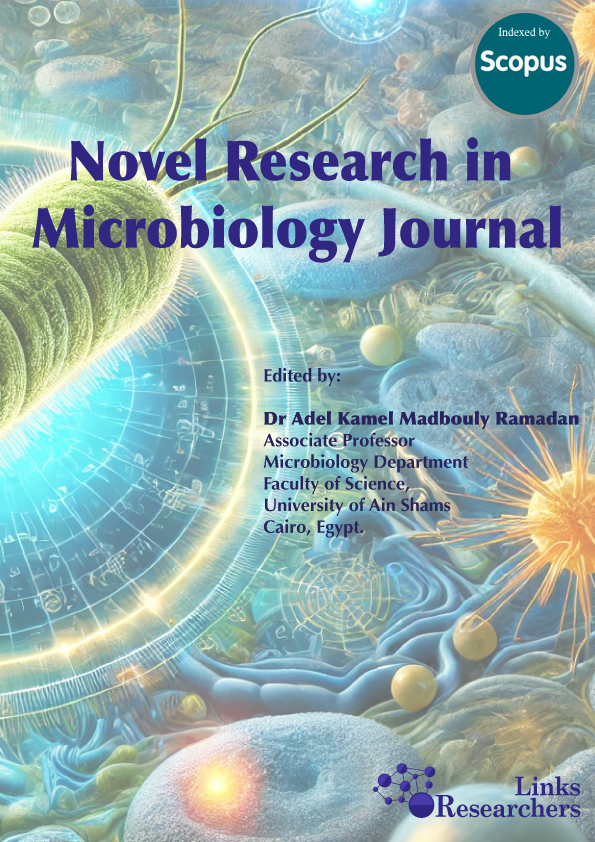Biodegradation of plastic materials obtained from solid waste dumpsites in Nigeria, using native bacterial strains
Novel Research in Microbiology Journal (2022), 6(5): 1713-1724
Biodegradation of plastic materials obtained from solid waste dumpsites in Nigeria, using native bacterial strains
Beatrice O. Ojiego1*; Obianuju P. Ilo1; Fatima Dantanko1; Shauibu A. Abdullahi2; Ibrahim M. K. Gadzama2; Paul Bolorunduro2; Elijah Ella3; Gideon I Ogu4
ABSTRACT
Plastic packaging materials constitute a major potential environmental pollutant due to their slow degradation rates. This study aimed to isolate the plastic-degrading bacteria from the solid waste dumpsites of Abuja, Nigeria. Soil samples (n= 72) and plastic materials (bottles and bags) were collected from the dumpsites using soil augers and manual picking, respectively. Bacteriological analysis of the soil samples revealed the recovery of a total of 54 bacterial isolates, which were distributed among the genera of; Proteus sp. (33.3 %), Providencia sp. (29.63 %), Pseudomonas sp. (16.67 %), Bacillus sp. (9.26 %), Micrococcus sp. (5.56 %), Escherichia coli (1.85 %), Enterobacter sp. (1.85 %), and Serratia sp. (1.85 %). The bacterial isolates were inoculated into a series of shake flasks containing nutrient broth and pre-sterilized strips (1×1 cm) of plastic bags (0.05-0.0514 g) and plastic bottles (0.05- 0.0529 g), and then incubated at 30 oC for 60 d to monitor their biodegradation using the weight loss method. The strips of bottles (0.58-49.00 %) were more susceptible to biodegradation than the plastic bags (0.78-15.40 %) after 60 d of incubation. The results demonstrated that about 6 of the bacterial isolates belong to the two genera of Proteus sp. and Providencia spp., and were considered the best bio-degraders. Molecular characterization of these potent isolates has identified them as Proteus mirabilis strain PPB3 (49.00 %), Proteus mirabilis strain UPMSD3 (32.07 %), Proteus mirabilis strain HH133 (20.41 %), Proteus mirabilis strain SSBIKEN (15.40 %), Providencia vermicola strain M4 (14.96 %), and Providencia vermicola strain 11 (12.20 %). These strains could be considered as potential biodegradation agents for the plastic materials that are prevalent in dumpsites.
To share on other social networks, click on any share button. What are these?





